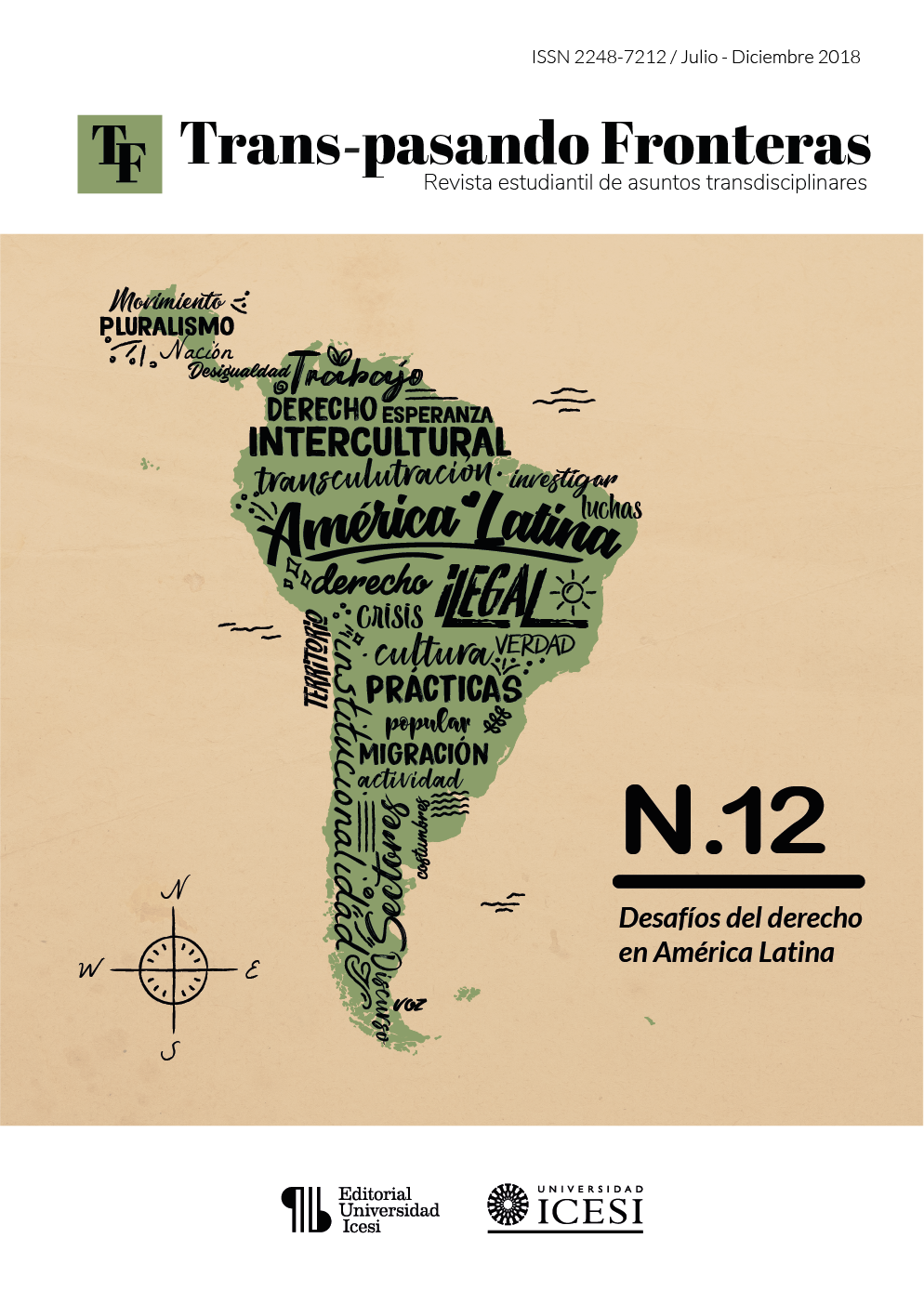Aportes para la construcción de un modelo constitucional colombiano no hegemónico y sus condiciones de posibilidad desde la perspectiva de la actividad jurisdiccional
DOI:
https://doi.org/10.18046/retf.i12.2935Abstract
The present text will be solved methodologically, from three moments: The first one will be in charge of making a characterization of some problematic and dogmatic concepts of the Colombian Political Constitution, such as multiculturalism, the idea of State-Nation and the way in which democracy is exercised through the system of representativeness. In this same point, some of the most relevant figures of the Constitution will be studied; aspects that will be analyzed from the transmodern, decolonial and post-structuralist theories. This is for the purpose of unraveling their nature and identifying possible limitations in terms of their justification and the way in which they politically and legally structure the State and its central institutions. In a second moment, an “other” constitutional theory, originating in decolonial and Latin Americanist theories, will be exposed, which base their statements on alternative readings of reality, in which interculturality, legal pluralism and constituent power are linked as an exercise. creative of the crowd and dynamics of inclusion of traditionally excluded subjectivities. Examining with such purpose, contributions of the constitutionalism of South American countries, in order to find out how the ideas of the philosophy of Latin American law are manifested in the materialization of some institutions of countries like Bolivia. Finally, once this “other” constitutional model has been characterized, an examination will be made from the perspective of the practical application of its contents in the jurisdictional activity, stating how, even if these theories are more legitimate, they could become inapplicable in terms of efficiency, which would also reduce the legitimacy of a system that is incapable of generating operational capacity and adequately protecting rights of a fundamental nature.
Downloads
Downloads
Published
Issue
Section
License
Trans-pasando Fronteras provides immediate open access to its content on the principle that making research freely available to the public supports a greater global exchange of knowledge.
© Authors hold copyright and publishing rights without restrictions but in accordance with the CC license.
All the material in this publication can be reproduced as long as reference is made to title, author and institutional source.







